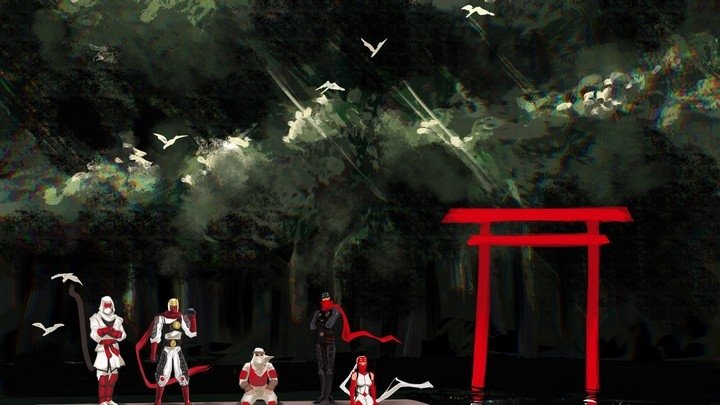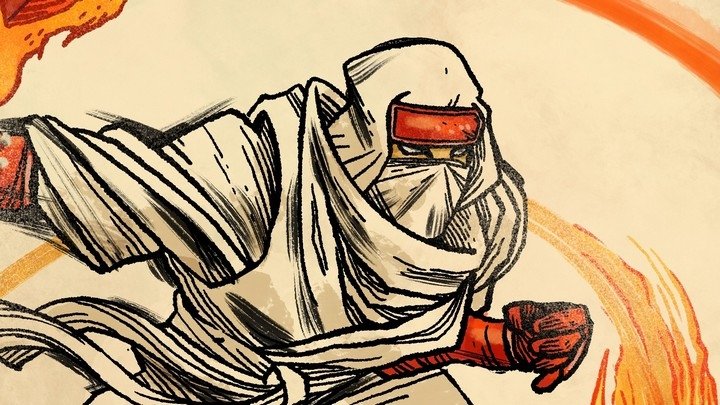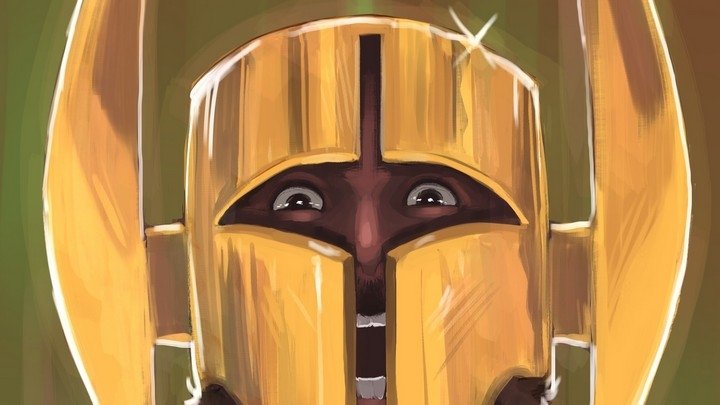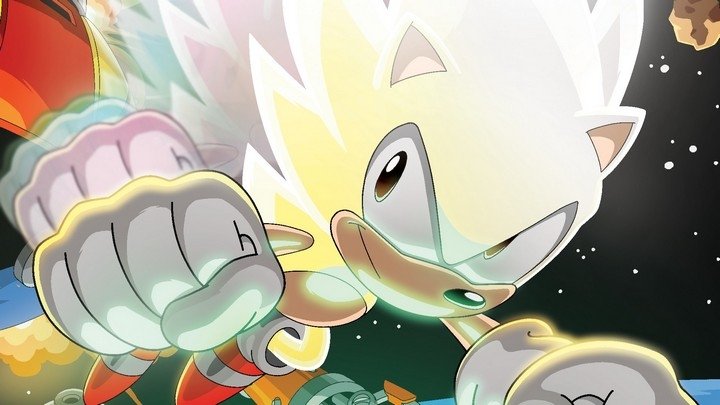Sega Forever is disappointing, but it doesn't need to stay that way
And turning in poor work doesn't always mean you don't care.
Last week, Sega revealed Sega Forever, a comprehensive digital platform for rereleasing classic games from the company's twenty-year history as a hardware manufacturer, all available for a pittance or free with the occasional ad. Unfortunately, the slick trailer that ushered Sega Forever into the world (echoing the distinctive ads that helped Sega eat Nintendo's lunch in the '90s, such as the brilliant "Cyber Razor Cut") was followed almost immediately by pronounced disappointment as players got their hands on the starting lineup. Crazy Taxi and Sonic the Hedgehog are excellent recreations reprogrammed from the ground up for mobile, but both were first released in 2013 and have merely been outfitted with Sega Forever branding after the fact. Altered Beast, Phantasy Star II, Kid Chameleon, and Comix Zone form the first batch of games explicitly released as part of Sega Forever, and all of them suffer from major and widely documented emulation issues. Adding insult to injury are developers of Libretro, the renowned universal emulation platform, attesting that they were attached to the project at one point before their contacts at GoGame, Sega's mobile intermediary, stopped answering their e-mails.
Many fans are now despairing of what appears to be a missed opportunity to bring such a legendary library of games to an easily accessible modern format. While it's true things aren't pretty right now, the nice thing about our digital future and mobile development especially is that it's never too late to go back and fix things as long as the publisher still has the interest. And it's safe to say Mike Evans, the mastermind behind Sega Forever, has interest in spades. When I spoke with him back in May, he proved to be nothing if not passionate about the platform's future, with ideas for a subscription service, local and online multiplayer, Sega's arcade games, and even bringing the platform beyond mobile to anything that can handle Unity.
Evans explained the impetus for putting everything in Unity was to make sure the games worked on as many different mobile devices as possible, but the potential for branching out to other form factors entirely hasn't escaped him: "The key thing is we can consider other platforms as well. I'm absolutely excited about starting out on mobile. I think it's a great platform where technology exists to get decent emulation as well. But once we've got the focus down there, we're also looking at how we might create the Netflix of retro games. What I mean by that is, thinking of hardware you already own, imagine if you have a single app which would sit on your Apple TV, for example, and in that single app you had a variety of different games, maybe even long-form content which you won't see on the mobile side as well. And that's what we're looking at there—but also the chance for desktop, the chance for Facebook as well, maybe even PlayStation. There's a whole lot of stuff we can do because the games are in Unity."
While Evans was quick to talk up features such as save states, leaderboards, and compatibility with Bluetooth controllers, he also demonstrated an appreciation for the need for high-quality emulation as he recalled the decision to include Saturn and Dreamcast games as ports rather than ROMs bundled in an emulation wrapper: "Everything from the SG-1000 through the Genesis, they are all going to be emulations. When you're talking about the Saturn and the Dreamcast, they are going to be ports. Just to explain why and what happened there, I went out to Japan a year ago. I met with some of the original dev team who worked on the Saturn, who worked on the Dreamcast. There are people who have been at Sega now for eighteen, twenty, twenty-five years. It's quite incredible, the loyalty you have out there, which is great to see. Anyway, we sat down, we looked very very carefully for a couple of days at emulation attempts on those particular two platforms. We figured, at the moment, it was somewhere in the range of eighty-five percent quality. The tough thing about emulation on those platforms is, you have on the Dreamcast translucent pixels, and emulation alternates how it renders. So if you've got translucency, trying to get that to render correctly is very, very challenging. A lot of people have tried in the past, there is some great community, but from a Sega perspective, we don't think releasing at eighty-five percent quality is the way to go. I've got an ongoing R&D project where I'm looking to see if we can crack emulation for those platforms, but for now, what we're going to be doing is we're going to be paying a little bit more money and we're going to be picking some of the top titles on those platforms, listening to some of the requests from fans as well, and porting those titles."
It's safe to say Sega's Genesis emulator is currently operating far below eighty-five percent quality, so I expect Evans is currently assessing their options to bring it up to a level they can be proud of. Personally, I would recommend getting back on the phone with the Libretro devs—that, or do what they're doing with Saturn and Dreamcast and commission more full conversions of Genesis games. I certainly wouldn't say no to more in the vein of Christian Whitehead's Sonic ports.
When asked if there's any room in Sega Forever for games created by third parties for Sega's hardware, Evans sized this up as yet another possibility to explore. Lest you think he's putting the cart before the horse, though, he acknowledged that they would have to make a solid foundation before they would be able to start work on anything else. It just happens that's still a work in progress. "I'm starting with Sega titles. At the count that I made internally, there are roughly up to a thousand first-party titles that we have across all these platforms, so there's a really good core content. That said, there were some great titles which were third-party; Soul Calibur was one itself. We're looking to first of all get the Sega part down, get the network building, get the QA process down, get the customer service process down, start to understand how these games perform. Then, after that, we definitely want to have a conversation with some of the other publishers as well, and if they're into it, I would love to see some of this content come on to what we're doing. This is a celebration of gaming, a celebration of nostalgia."
Sega Forever's Virtual Console-esque trickle of releases may run counter to his aforementioned dream of "the Netflix of reto games," but Evans explains the trickle provides opportunities to engage with the community: "One of the things we want to do with this program, one of the reasons why we've chosen the cadence of a single game and doing it as individual apps as opposed to just having one huge app and having all the games available at once, is that— When you think about when you were consuming these games, maybe as a kid whilst you were growing up, it was a lot of fun and anticipation waiting for that next game to come out. So during the period when the game is going to be released, we're going to be educating people about what the game is about, fun facts, we might release some video compilations of the game. I've hired a couple of community managers who were hired directly from the community itself, people who are super core Sega fans. We sent them a very challenging fan trivia test, which was great fun. We weeded out some really, really quality fans who've come on board and who are working with us. They're running the community side. We're setting up some dedicated Sega Forever channels because this is an ongoing program, and you're going to see lots of content from there about the games."
As excited as he is to make fans mark out, Evans also wants to hear back from them, including democratizing the process of determining which games to release next: "As we go forward, in terms of the release schedule, the way we're working is going to be controlled and influenced by a couple of factors. One is, we are going to be trying to align some of the games, where it makes sense, to the anniversaries. So imagine it's the twentieth anniversary of Space Harrier; what we would do is drop Space Harrier on that day as part of the celebration. That's one thing we're trying to do. Historical context—make sense where we can make it happen. The other thing is, over a period of time, I'm eventually going to have a number of ROMs ready to go. What we'll do then is go to the community and say, 'Hey, we've got these five games. These are the games. Which is the game which you'd like to see next?' Voting on it as a poll."

In perhaps his boldest claim of all, Evans stated he'd even like to go so far as to collaborate with fans on localizations of games that were never released outide Japan: "The other thing that I'm really interested in is games which existed in Japan but never made it West. And that's a different challenge for us. I'll give you an example: There's a game you may know called Segagaga, which is where you're this kid and—"
He heard me chuckling and stopped short. I can't help it where Segagaga is concerned, though. I recommend perusing Hardcore Gaming 101's synopsis if you're not familiar.
"Do you know Segagaga?" he asked.
"I know Segagaga."
"Great!" he continued. "But it was never released across the West. I love the idea of the game; I love the idea of trying to save Sega back in the Dreamcast era. I would love to have discovered it myself. So what we're thinking about doing is working with the community, fan-generated translations, and seeing if we can unlock some of the content that way. That's a business initiative we're thinking about at the moment."
This would be a big deal. Segagaga did have a fan translation project at one point, but it apparently ran out of steam a few years ago. Getting official support from Sega could turn all that around and finally bring the English-speaking world one of the company's more egregiously elusive games.
"There are some really good pockets of fans whom we've spoken to," Evans noted. "We have a panel of Sega fans as well, and for a lot of them, the chance to be able to work on a project like that, which is a big undertaking, is something they would be up to do. It would be a good thing. It's something we're looking at; we've not confirmed, but it's just ideas on how we bring this project to the community—how do we bring the community into it?"
Evans clearly has no shortage of ambition, but his emphasis on framing games in their historical context tells me his heart is in the right place when it comes to curating the classics, and in between his marketing talk he seems to understand simply delivering a sterling experience can drive customer engagement as much as any amount of bells, whistles, or community outreach. This isn't to excuse the current state of Sega Forever, but it gives me hope that our criticisms are being heard and that it will eventually get better down the line. Sega's press release claimed they intend to support Sega Forever over the course of years, and I doubt even the ignominy of this botched launch is going to change their minds. Just as the idea of Sega Forever is irresistable in theory, Sega isn't likely to up and abandon a project that could command such tremendous appeal if only they got it right. As for Evans in particular, he worked for a year just to bring it to life, and he has a long, long way still to go if he wants to make good on all his aspirations. We'll keep you posted with any updates as they make their way there.




